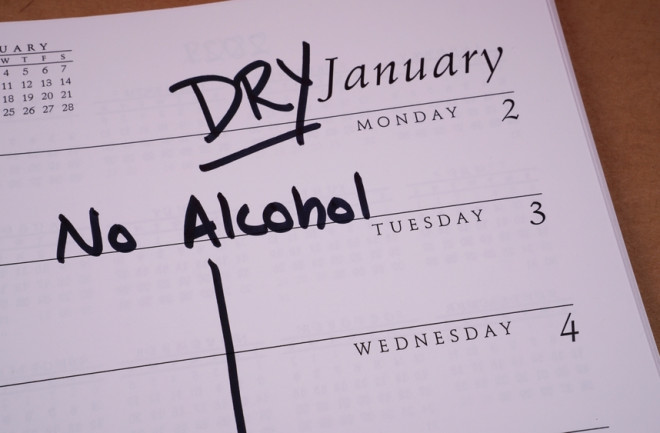After the champagne bubbles have fizzled down on New Year's Day, many people participate in the sober challenge, "dry January." This sober challenge marks a distinct shift to a mindful, health-focused start to the year.
There are significant health benefits to dry January, but keeping this commitment is sometimes difficult. The positive impacts that take part in dry January can help your health, habits, and attitudes towards alcohol. The challenge may be easier for some than others, but there are resources available to help you stay on track and even form healthy drinking habits.
What Is Dry January?
Dry January is a public health campaign that originated in the U.K. and encourages people to abstain from alcohol for the month of January. From the overindulgence of the holidays to numerous health benefits — like better sleep and energy increase — there are several reasons people take a step back from drinking during January.
When Did Dry January Start?
The first official dry January challenge took place a decade ago, in 2013, after a British woman gave up drinking during January as she trained for a half marathon. During this time, she lost weight, had more energy and slept better. After her experience, she joined Alcohol Change U.K., an organization dedicated to preventing harm from alcohol, such as drunk driving, domestic abuse, negligence and physical and mental health issues. Over the past 10 years, dry January spread and became more popular.
The U.S. alone saw a participant increase from 21 percent in 2021 to 35 percent in 2022, according to CGA — an organization that collects data on the restaurant and bar industry.
As dry January has taken root, participants have noticed several health benefits from reducing their alcohol intake.
Read More: Binge Drinking or Imbibing a Little Bit Every Day?
Dry January Benefits: Is It Good for You?
There's no way to sugarcoat it; alcohol is not great for your health. Even somewhat minimal drinking can harm your health, including liver disease, heart problems and cancer, and can even cause fatigue. Those who take breaks from drinking, like for dry January, have an increase in energy, a more positive mood and better sleep. And better yet, the dry month has some long-term positive effects as well.
Data collected from dry January participants by Richard de Visser of the University of Sussex and Alcohol Change U.K. found that after six months, seven out of 10 people continued to drink less than before. And about 25 percent of the people who were drinking at a "harmful" level were now in the low-risk category.
As popularity grew, Alcohol Change U.K. began providing resources, including daily emails and an app to help people stay motivated to stay sober.
Read More: What Happens To Your Brain When You Stop Drinking?
Dry January Tips
It's normal to need help when giving a substance up, like alcohol. If you feel like you're struggling, try these tips.
Create a support group or network. Friends or family can do the challenge with you or you can lean on people in your life to help you avoid temptations.
Avoid temptations. Remove any alcohol from your home and avoid bars and restaurants where drinking alcohol happens frequently.
Find a non-alcoholic substitute. If you don't want to stay home the whole month, many bars and restaurants will provide non-alcoholic (NA) options like NA beer and wine.
Try different apps to stay on track. Apps can help you track the money and calories you save during dry January. You can also journal your thoughts and track your mood and sleep throughout the month.
Practice mindfulness. Use this time to analyze and reflect on your drinking habits. Do you feel better without drinking? Are you having more issues cutting back than you initially thought? Keep track of these feelings and goals.
Don't be hard on yourself. If you slip up one day, consider your dry January more of a Damp January. You're only human, after all.
If you're really struggling to give up alcohol and start experiencing symptoms such as nausea, fatigue, headaches, and even fever, be sure to seek help from a medical professional.
Read More: What Is Alcoholics Anonymous and How Does It Work?
This article was originally published on Jan. 6, 2023 and has since been updated by the Discover staff.

